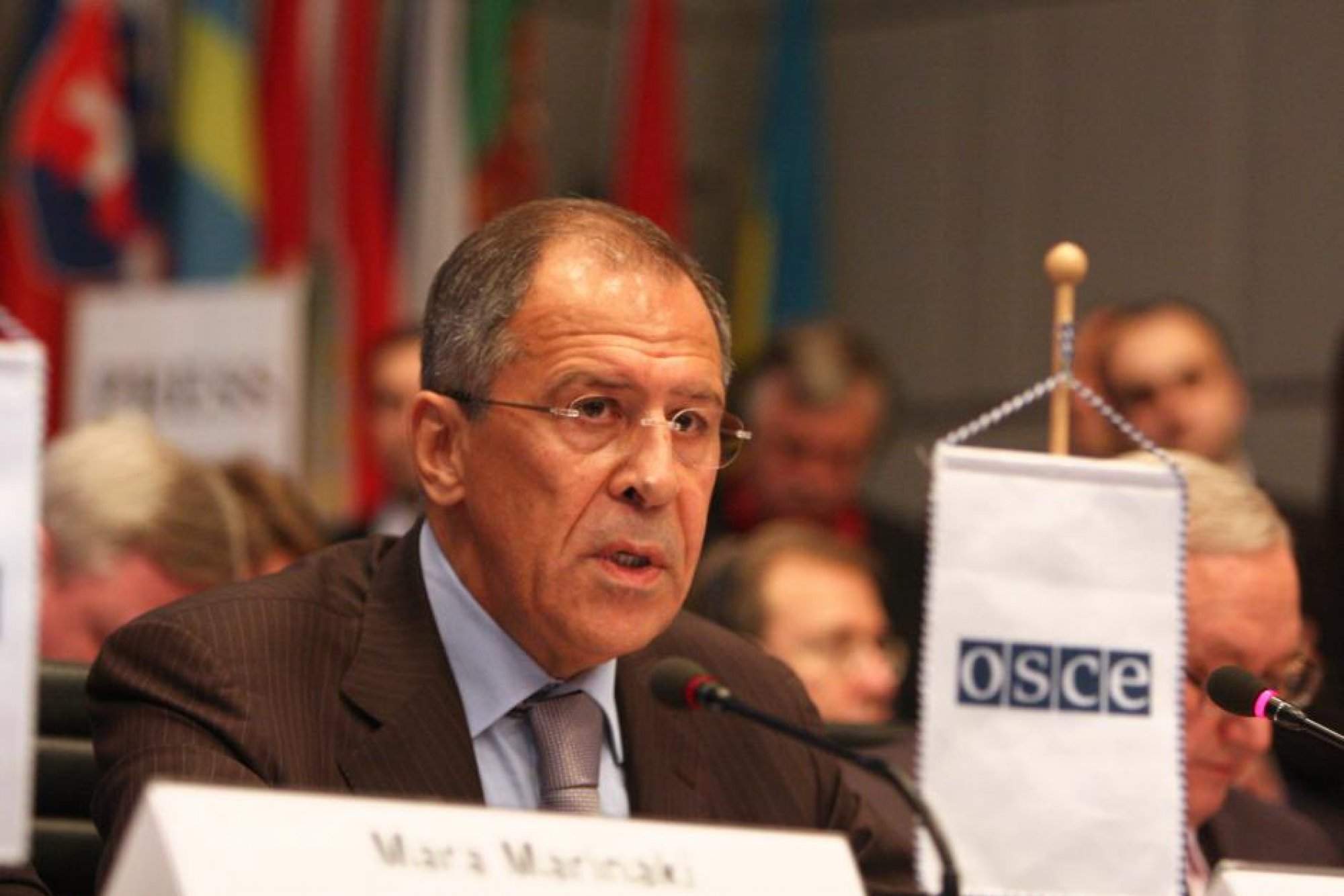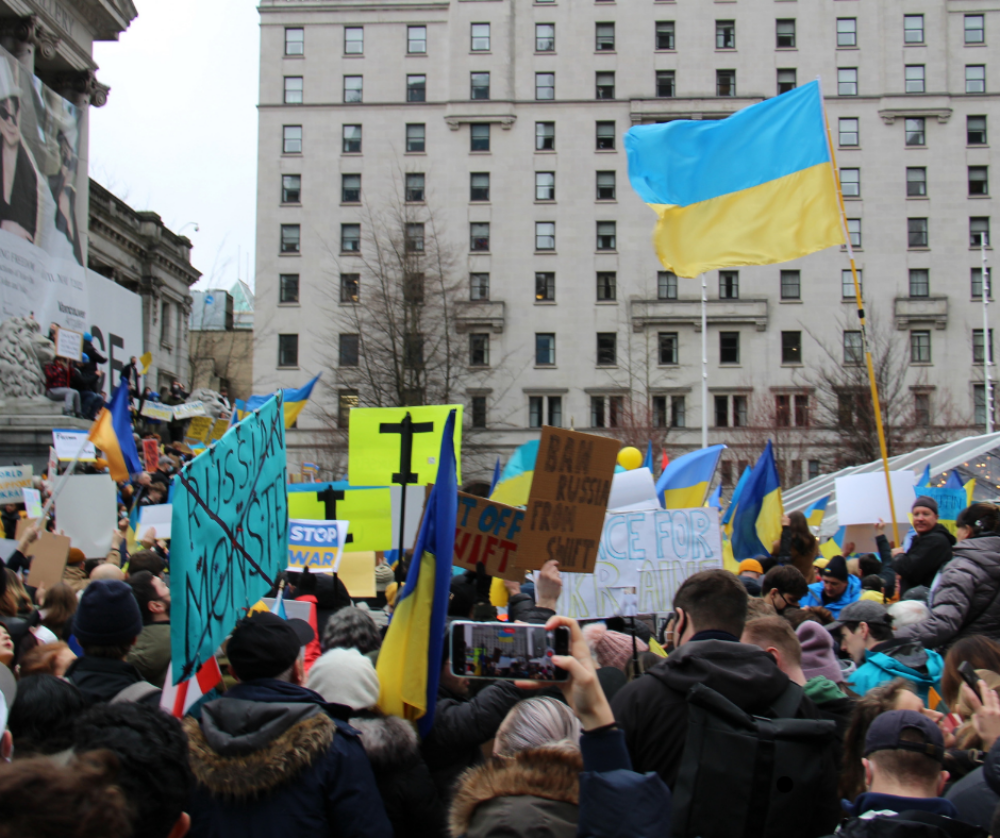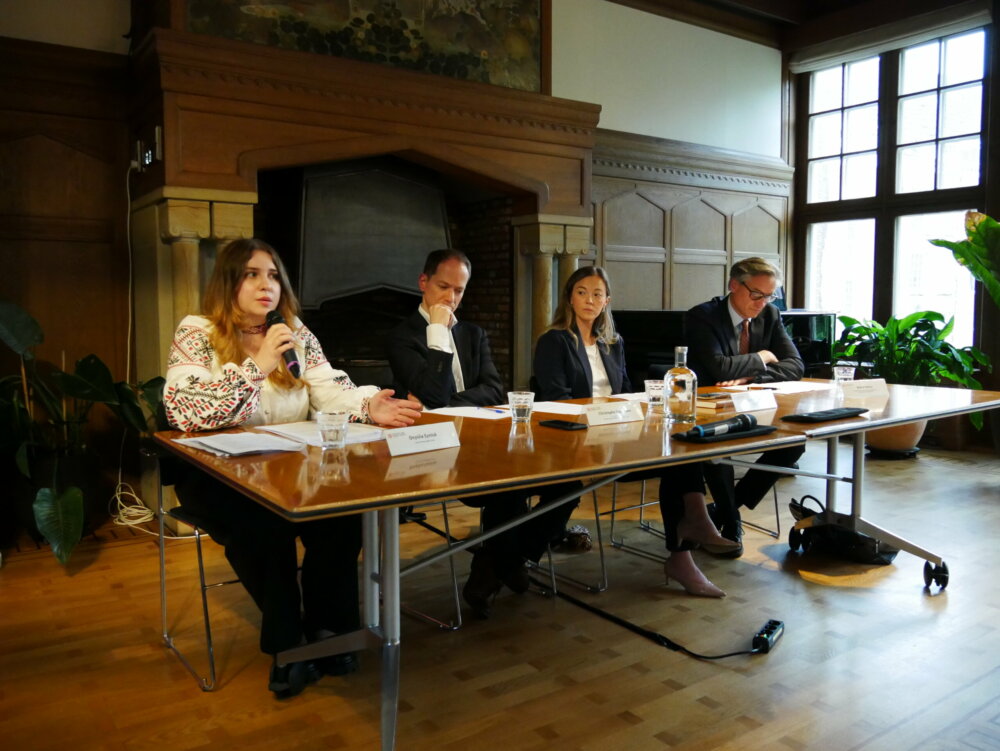OSCE/Susanna Lööf

To stay or not to stay? Seven concerns Russia has about the OSCE
Today we live through a new cycle of intense confrontation between Russia and the West. This confrontation is exemplified by Russia increasingly voicing its disappointment in and frustration with many multilateral international institutions – from the United Nations to the Council of Europe and to the Organization for the Prohibition of Chemical Weapons.
Though few would question the importance of multilateralism as such, its existing practice raises concerns and meets growing resentment. It has become a fashion in Moscow to make a case for a new isolationism and Russia’s disengagement from many international agreements, regimes and institutions.
The Organization for Security and Cooperation in Europe (OSCE) is no exception. In Russia, an increasing number of statements can be heard about OSCE allegedly failing to meet Russia’s expectations, interests and proposals. Sometimes such statements lead to conclusions that the OSCE is hopeless, that its time is over and that Moscow should leave this dysfunctional and highly biased Organization as soon as possible.
One could brush off these statements and conclusions as incompetent, politically loaded and destructive. Still, since they have received broad circulation at least in the Russian expert community, it would be more appropriate to dig deeper into this matter and to reconstruct the logic of the criticism. The goal of this brief article is to summarize the most popular Russian arguments against the OSCE and to offer counter-arguments in favor of continuous Russian engagement with this important international institution.
OSCE has a geographical bias
Critics argue that after the end of the Cold War, the OSCE has focused its attention on States and territories to the East of Vienna (mostly in the post-Soviet and post-Yugoslav countries), while the rest of the vast Euro-Atlantic space has never appeared on its radar screen. The logical conclusion is that the OSCE is a one-way street – a mechanism to transfer Western values and practices to the East of the European continent. This geographical bias looks particularly inappropriate today when many Western countries themselves experience increasingly serious problems with political populism, extremism, and separatism, the argument goes.
This assertion is partially true. Indeed, over the past two decades, the OSCE has conducted many operations and implemented many projects in the former Yugoslavia and, to a lesser extent, in the former Soviet Union. However, these activities are generally on the decline now, with the exception of the OSCE Special Monitoring Mission to Ukraine and some limited activities in Central Asia. More importantly, an attempt to block the Western influence in the post-Soviet space by leaving the OSCE does not make any sense. The West will continue to promote its political institutions and democratic standards in the East in any case. The only question is whether it will do it mostly through the OSCE, where Russia has a say, or whether it will use mostly EU mechanisms and/or bilateral agreements between major Western powers and their partners in the East. Leaving the OSCE would simply deprive Moscow of any kind of influence with regard to the East-West interaction in the Greater Europe in the future.
OSCE has a thematic bias
Another line of criticism maintains that the Organization has focused almost exclusively on the human rights agenda, to the detriment of other, equally important parts of its initial mandate, such as security, economic cooperation or environmental protection. Politicians and scholars in Russia often claim that the OSCE has turned into a body which sees its main mission in criticizing all possible deviations from the flawed Western interpretation of human rights and in advancing the obsolete concept of the “liberal universalism”.
This view is not entirely right. The OSCE never limited its activities to human rights protection. For instance, it remains one of very few mechanisms to discuss European security in general, and confidence-building measures in Europe in particular. One should not forget that in 2014, the OSCE turned out to be the only international organization capable of playing a role in deescalating the crisis in Ukraine. However, even if the OSCE decided at some point to terminate all of its human rights and democracy-related activities, this decision would not make Russia’s position any easier. These activities would simply move to another place – for example, to the Council of Europe, which arguably has more rigid human rights standards than the OSCE.
OSCE has failed to implement the Charter of Paris
Numerous opponents of the Organization never miss an opportunity to underscore that the 1990 Charter of Paris has remained on paper only, and the OSCE has never become the cornerstone of the Euro-Atlantic area as leaders had hoped for some thirty years ago. Today our common continent is more divided than it has been at the end of the 20th century, and the prospect of returning to the concept of a “Europe whole and free” at this juncture does not look too encouraging.
It is hard to deny that OSCE participating States have failed to implement the Charter of Paris in full, and that the OSCE has failed to receive the central position in the Euro-Atlantic security system. There is an endless and fruitless discussion about who is responsible for this historic failure – Moscow or Western capitals. Still, it is clear that one cannot blame an organization for the failures of its members to provide it with more authority, power and guidance.
Any organization is as strong and efficient as its members want it to be. Maybe, the time has come for another OSCE summit meeting with the idea of setting new goals and priorities for the Organization in a situation very different from what it was back in 1990. If the Charter of Paris looks too romantic and naïve today, let us get back to a less antiquated 2010 Astana Declaration and figure out whether we can use it as a foundation for building a new Europe in 2021.
OSCE is not innovative enough
Critics also argue that the OSCE is too slow to respond to new challenges to the European security and to new opportunities for cooperation in Europe. In particular, critics say that the OSCE has not yet played a significant role in such areas as confronting international terrorism, dealing with illegal trans-border migration, managing climate change, or fighting COVID-19. The OSCE has also never seriously attempted to export its model to other regions of the world – like the Middle East and North Africa – and its modest efforts to get involved in Afghanistan were not successful either, critics say.
Of course, any organization has its institutional inertia and the OSCE is no exception. Still, nobody forbids it from including new topics in its overall portfolio. For Russia, it would be easier to advance an innovative agenda through the OSCE than through the NATO-Russia Council or through the remnants of the former EU – Russia cooperation mechanisms. Starting with relatively modest, technical aspects of these huge and extremely complicated problems, and investing relatively small amounts of additional funds, Moscow is not likely to find too many institutional obstacles within the OSCE. At the lower end of OSCE activities, there is often no need to reach consensus among all participating States if there is a desire to launch new initiatives. For example, one could start with putting together a representative “coalition of the willing” on this topic.
OSCE costs Russia too much money
One of the favorite arguments of OSCE critics in Russia is that Moscow spends too much money on the Organization, especially given the more than modest political returns on its investments. In addition, Russian proposals are often rejected in Vienna, and various bodies of the OSCE, in particular its Parliamentary Assembly, often harshly criticize the Kremlin. Furthermore, Russia is also clearly underrepresented within the OSCE staff at most levels, critics say.
This argument does not look very convincing. The OSCE has always been a comparatively low-budget institution. Russia pays about $ 80 million per year as its contribution to the regular budget of the United Nations (not to mention another $ 300 million on UN peacekeeping), and close to $40 million per year to the Council of Europe. The Russian contribution to the OSCE budget has never exceeded $ 10 million per year and the Organization’s field operations have always been relatively inexpensive for Moscow. The OSCE is a good investment opportunity for the Kremlin if Russia still cares about preserving a serious multilateral dialogue with its Western neighbors.
OSCE has no clear status
One of the fundamental problems of the OSCE in the eyes of its dedicated opponents in Russia is its ambiguous legal status. The OSCE has no Charter that has been ratified by national legislatures and is therefore not a full-fledged intergovernmental institution, they argue. Some of the OSCE agencies have acquired too much autonomy or, as you might conclude looking from Moscow, they have been de-facto hijacked by the West, like the Office for Democratic Institutions and Human Rights (ODIHR).
This seems to be a partially valid argument. The OSCE needs a Charter or a legally-binding Founding Act that would certify its mandate, structure and mode of operation. Ideally, this new document, prepared in accordance with Chapter VIII of the UN Charter, should turn the OSCE into a rightful international organization with enhanced institutional capacities and more generous funding from member States. It should also clarify the division of labor between the Secretary General and the OSCE Chairperson-in-Office, as well as specify the degree of autonomy of OSCE bodies, including ODIHR.
However, pushing for institutional reforms within the OSCE can only be done as participating State of the Organization, not as an outsider. The sad story about the United States initiating its withdrawal from WHO and then getting back in should serve as a lesson for policymakers not only in Washington, but also in Moscow.
If Russia leaves, OSCE will collapse
Somehow, many Russian critics of the OSCE tend to believe that once Moscow leaves the Organization, it will completely lose its practical meaning and will soon collapse. When this collapse happens, Russia could start building its own multilateral institution, engaging members of the Collective Security Treaty Organization (CSTO), Eurasian Economic Union (EAEU) and other likeminded countries. After all, Russia has a lot of experience launching new international institutions (see for example BRICS, SCO, EAEU and others).
This assumption does not look realistic. Even the most authoritarian regimes in the post-Soviet space value participating in the OSCE because for them the OSCE is one of very few opportunities to remain part of the Euro-Atlantic community of nations. For instance, all Central Asian States are OSCE participating States, though they are not members of the Council of Europe. It is highly unlikely that Russia’s departure will trigger a chain reaction and lead to an institutional collapse of the OSCE. However, if Russia leaves the OSCE, this departure will definitely change the balance of power within the Organization and the “Western agenda” could in turn become more explicit and more articulate.
Having left the OSCE, Moscow will have no instruments for promoting institutional reforms or for balancing diverging national priorities within the Organization. At the same time, even if the OSCE became fully marginal in Europe, NATO and the European Union will undoubtedly fill the emerging vacuum, which is hardly in Russia’s interests.
For many historical, cultural, institutional and even psychological reasons, Moscow has never been particularly strong in foreign policy multilateralism. The time has come for Russia to muster its ability to work efficiently within complex, and sometimes controversial multilateral frameworks. A more active and more flexible Russian position within the OSCE might be an appropriate way to test new patterns of behavior that Moscow could later apply to other international regimes and institutions, including those that have more power and authority than the OSCE.
The OSCE does not have a magic wand to fix numerous problems between Russia and the West, but it can offer a platform to discuss these problems in a rational and mutually respectful way. Moscow does not have such platforms in plenty today and this is another reason to preserve and to upgrade what it still has at its disposal.
*Andrey Kortunov is Director General of the Russian International Affairs Council (RIAC).
Comments
One response to “To stay or not to stay? Seven concerns Russia has about the OSCE”
Leave a Reply
* Your email address will not be published



The description of the voices of those who are “against” in Moscow is Good.
However, those opponents seem to be guided by the position of the West vs Russia and under such circumstances the author offers a rather romantic way forward ).